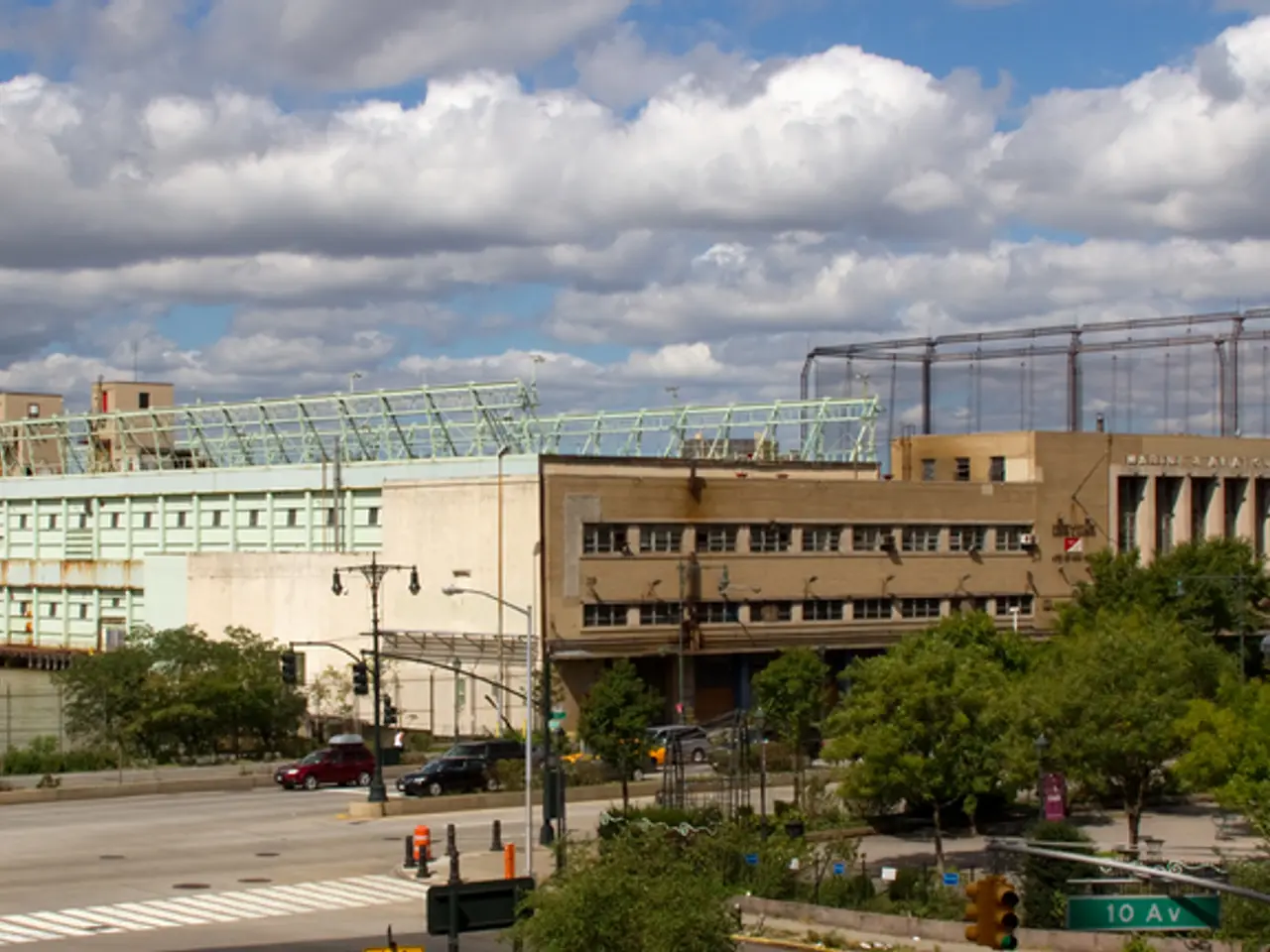Economic Analysis by Economist Impact Reveals Findings
========================================================================
Cities around the world are taking bold steps towards decarbonisation, focusing on key areas such as energy efficiency, construction, low-emissions mobility, and digital connectivity. In a groundbreaking research initiative, Economist Impact and its network will delve into the strategies and technologies that are driving these efforts.
The research findings, which will be published around the COP26 climate conference, will not be repeated here. However, registration for the research is available for those interested in exploring the topic further. The findings will be shared on LinkedIn, Facebook, or via email upon their release.
One of the key technologies highlighted in the research is Direct Air Capture (DAC). Systems like the Skytree Stratus efficiently remove CO₂ from the atmosphere, making them suitable for urban and industrial settings. Skytree’s modular DAC units are energy-efficient and scalable, providing options for hybrid and fully electric operations.
Another technology that plays a significant role in decarbonisation is renewable energy microgeneration. Integrating micro wind turbines into urban environments can generate low-carbon electricity, supporting distributed energy generation in cities.
AI-driven sustainability solutions also feature prominently in the research. AI technologies help optimise energy consumption, air pollution monitoring, and predictive modelling for urban environments. For instance, AI-powered air quality monitoring platforms provide real-time pollution alerts and forecasts to protect public health and guide policy.
Sustainable materials and circular economy solutions are another crucial aspect of decarbonisation. Startups developing sustainable materials and circular solutions, like those transforming recycled tires into infrastructure, contribute to decarbonisation by reducing embodied carbon in construction and products.
Advanced electrification and clean energy transition are also essential components of city decarbonisation strategies. Cities accelerate decarbonisation by transitioning to electric vehicle fleets, building clean power infrastructure, and employing clean energy innovations.
Best-practice example cities include Houston, Texas, which hosts "Houston Energy & Climate Startup Week," focusing on energy transition, carbon capture, clean power infrastructure, and green tech investment. This event brings together startups, corporates, and academia to accelerate climate innovation.
European and Canadian cities are also leading the way, with pilot projects for DAC units like Skytree’s Stratus underway. Cities leveraging AI platforms for real-time air pollution monitoring and predictive modelling, such as the use of IQAir and Plume Labs apps, are also reducing pollution health impacts and informing urban policies.
In conclusion, successful city decarbonisation blends advanced technologies like DAC, renewable microgeneration, AI-enhanced monitoring, and circular materials with active policy support and innovation ecosystems, as seen in cities like Houston and various European and Canadian hubs experimenting with next-gen green technology. Stay tuned for the research findings to learn more about the strategies and technologies driving city decarbonisation efforts.
- Environmental science, data-and-cloud-computing, and technology play significant roles in city decarbonisation, as they facilitate AI-driven sustainability solutions for optimising energy consumption, air pollution monitoring, and predictive modelling in urban environments.
- The swift advancement of science, especially in areas like Direct Air Capture (DAC) and renewable energy microgeneration, offers environmental-science-focused opportunities for urban decarbonisation, as seen in the implementation of Skytree's Stratus system and micro wind turbines in cities.




